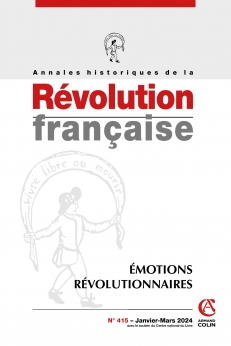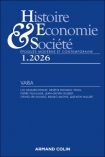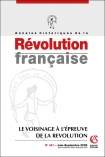
ANNALES HISTORIQUES DE LA RÉVOLUTION FRANÇAISE Nº415 (1/2024)
Pour acheter ce numéro, contactez-nous
Recevez les numéros de l'année en cours et accédez à l'intégralité des articles en ligne.
Viewing the early years of the French Revolution as an apprenticeship in democracy underestimates the complexity of the Constituent Assembly’s approach to electoral participation. This article uses an analytical frame around practices and languages of “trust”, in a context of highly-emotional responses to persistent real and imagined threats, to explore how deputies constructed their vision of an electorate, its responsibilities, and its dangers. It shows that fears over the corruption of electoral processes were at the core of debates in both 1789 and 1791, and that the sphere of autonomy allowed to electors and the elected, at all levels below the national legislature, was so narrow as to inevitably lead to further conflicts.

